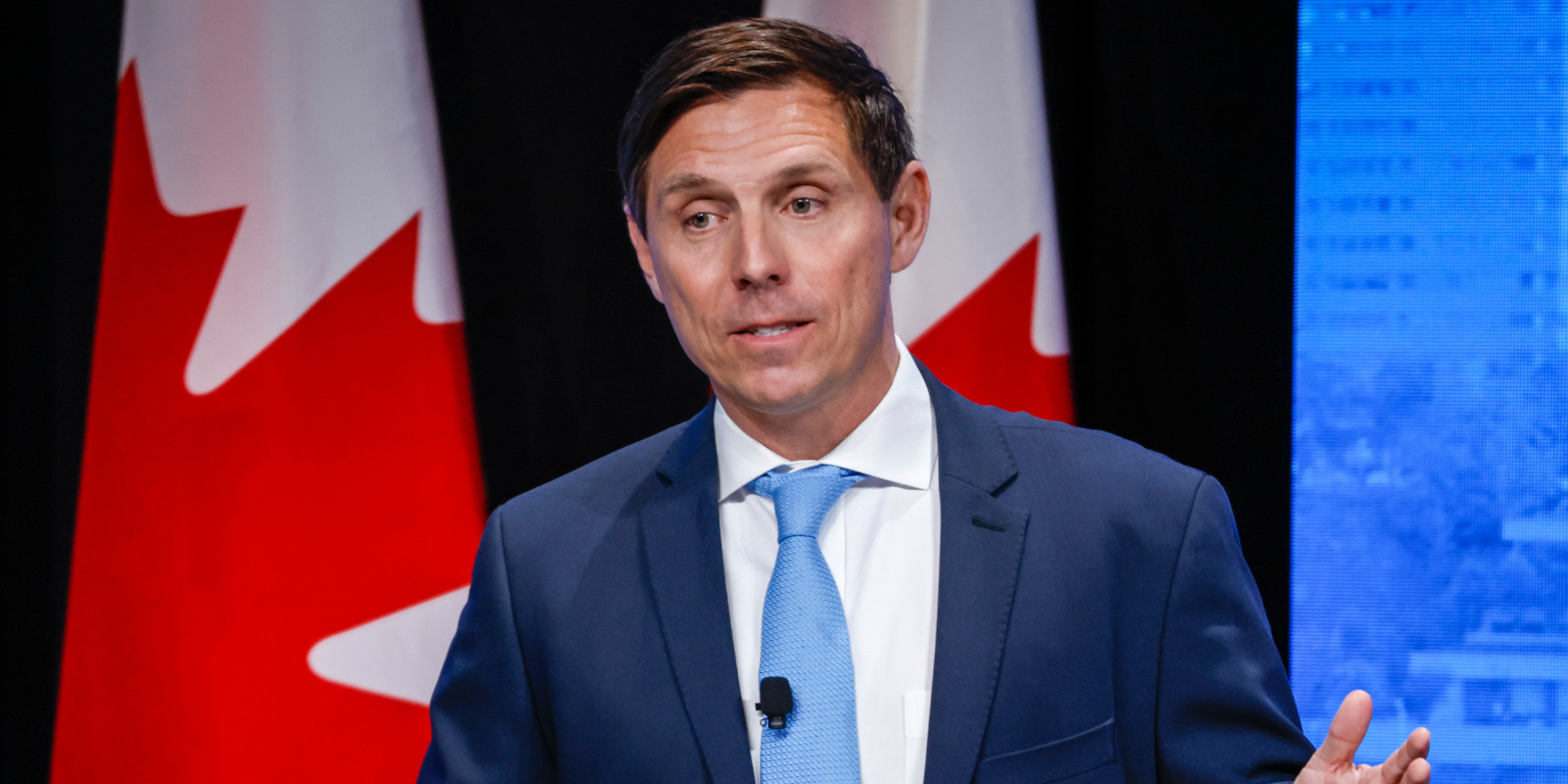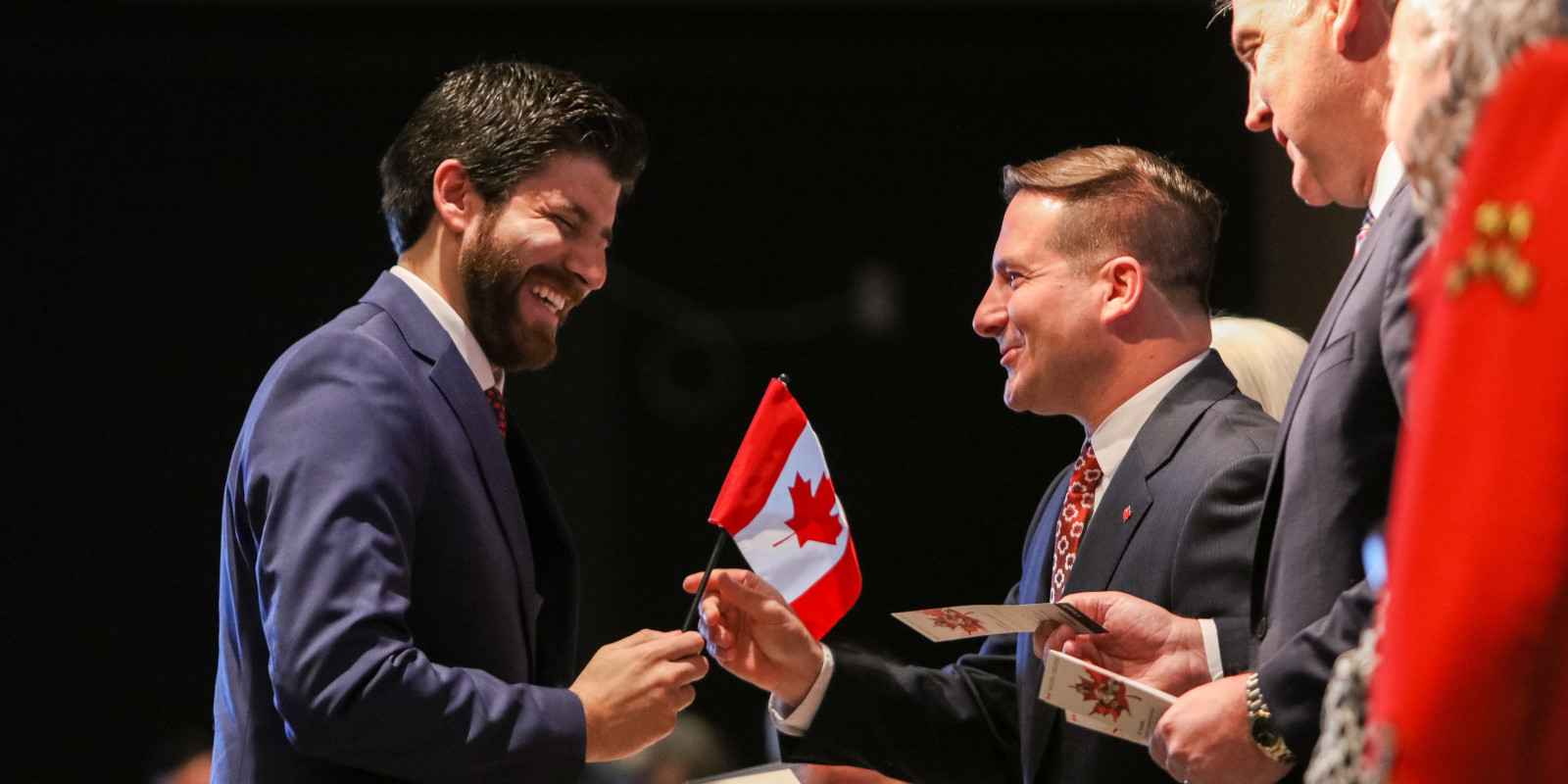It was poised to be a sleepy week for the Conservative Party leadership race following the Canada Day long weekend.
Then on Tuesday evening, Ian Brodie, chair of the Conservative Leadership Election Organizing Committee (LEOC), released a statement announcing candidate Patrick Brown had been disqualified from the contest.
Brodie’s statement revealed the committee voted 11-6 to disqualify Brown following allegations his campaign violated financial provisions of the Canada Elections Act. Furthermore, the statement read that the Brown campaign had failed to satisfy the committee’s concerns when asked to respond to the allegations.
This is not the first time a candidate has been disqualified from a Conservative leadership race but never before has a high-profile candidate like Brown been expelled, especially in the closing stages of the contest.
As of Thursday, Brown is appealing the disqualification.
Brown’s disqualification leaves Pierre Poilievre and former Quebec premier Jean Charest as the two presumed leading contenders in the leadership race. According to Brown, 44, it was Charest who first interested him in Conservative politics as a teenager, and the two remain friends despite being rivals in the race.
Speaking with The Hub on Thursday, Brown said it was premature for him to discuss endorsing Charest if the attempt to appeal his disqualification fails.
Despite accusing the Conservative establishment of sabotaging his candidacy, Brown said he does not plan on leaving the party.
“I still hold out hope that we can build a modern, inclusive Conservative Party,” said Brown in an interview with The Hub on Thursday. “If the party is insistent on giving Pierre Poilievre’s extreme brand of conservatism a coronation, that doesn’t mean I give up on the party.”
These remarks stand in contrast to others he gave last month, where he stated he would not run as an MP under the Conservative party banner if Pierre Poilievre won the leadership, but would consider it if either Charest or Leslyn Lewis emerged victorious.
Brown, the current mayor of Brampton, has also previously stated his intent to run again in Brampton’s mayoral race this fall if he lost the Conservative leadership contest. “If it looks like Pierre is going to win, I would prefer to continue to serve municipally, rather than being a part of what will be an electoral train wreck of the Conservative Party,” Brown said in an interview last month.
On Wednesday, five Brampton city councillors penned an open letter expressing their concern with Brown’s leadership and urging him not to seek another term.
As to the nature of the allegations against Brown’s campaign, after the news of the disqualification broke on Wednesday the National Post reported that a source close to the LEOC revealed the committee’s concerns included a private company paying the salaries of a number of Brown campaign staff.
Later that day, the Globe & Mail reported that Elections Canada was in possession of text messages related to the alleged violations that caused Brown’s disqualification. The details of the allegations have not yet been revealed to the public, which has led to criticism of the Conservative Party regarding the transparency of its decision.
Brown went on a media blitz after his disqualification, stating his campaign was not given a fair chance to contest the anonymous allegations (which have since been attributed to a regional organizer on his own campaign) that he denies.
“Simply put, there was no due process provided in this decision, and an unprecedented reverse onus was applied to our campaign,” read a Brown campaign statement. “This decision has disenfranchised over a hundred thousand Canadians from BC to Nova Scotia that chose to join the party…”
The Conservative leadership campaign has resulted in a record 675,000 Canadians holding party memberships, with Brown’s campaign claiming to have signed up 150,000. Pierre Poilievre’s campaign has self-reported signing up roughly 312,000 members.
Brown accused the Conservative party establishment of rigging the contest in favour of Poilievre. However, Conservative Party president Rob Batherson stated that the allegations had come from inside the Brown campaign and disagreed that Brown was not afforded due process in responding to the allegations.
Reactions to the disqualification varied, with some commentators agreeing with Brown’s charge that the Conservative Party establishment wanted him out of the picture and accusing the party of corruption. Others commended the party for taking the allegations seriously and felt the disqualification was an ethical decision.
Hub contributor and University of Manitoba professor of political science Royce Koop disagrees that the LEOC is biased against Brown and says that the relatively lengthy leadership race was to Poilievre’s disadvantage, who entered as the front-runner in February.
“It’s to be expected that if a candidate is disqualified, he will call into question the impartiality of the governing body,” wrote Koop over email. “But there’s no evidence the LEOC is biased against Brown or biased in favour of Poilievre.”
Throughout the leadership race, Brown positioned himself as a moderate against Poilievre, who is widely regarded as the more conservative candidate. Relations between the Brown and Poilievre campaigns deteriorated early in the race, with both teams trading rhetorical barbs for months.
Koop says there is a belief that Prime Minister Justin Trudeau’s Liberal government is vulnerable, and that the winner of the Conservative leadership race can reasonably expect to become prime minister, resulting in a more intense contest.
A Poilievre victory in the leadership race was now described as a near certainty with Brown out of the race.
“If anything, this episode has shown that the CPC is different from the Liberals,” wrote Koop. “It’s difficult for an entrepreneurial outsider to swoop in and remake the party in their own image.”
With thousands of paper ballots already mailed out to Conservative Party members, Brown’s name will still appear on the ballot for the leadership election. Any first-place selections for Brown on the ranked ballots will be disregarded by party officials, and those voters’ subsequent ranked choices will be counted once a candidate is eliminated from the ballot.
The leadership election is expected to take place in Ottawa on September 10.
Recommended for You

Ginny Roth: J.D. Vance, Pierre Poilievre, and how they slice their economic pie

David Polansky: As President Biden leaves the race, will the Democratic Party hodgepodge hold?

Peter Menzies: The mainstream media should love Doug Ford, now that he’s subsidizing them

Geoff Russ: A future Conservative government must fight the culture war, not stand idly by









